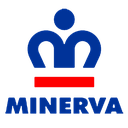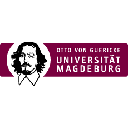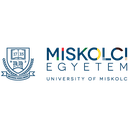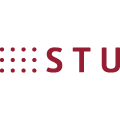Executive Secretary

XI Conferencia Científica Internacional de Ingeniería Mecánica
COMEC 2023
IX Taller sobre la Enseñanza de la Ingeniería Mecánica
Resumen
La automatización de los procesos tecnológicos ha irrumpido en el ambiente laboral de los ingenieros y es una tendencia creciente en la llamada Industria 4.0. Ahora los ingenieros se enfrentan a este ambiente de trabajo en que las magnitudes fundamentales que determinan el proceso son captadas por sensores cuyas señales adecuadas llegan a un computador en el cual un software especializado las trata y se las presenta en cierta manera para que él las analice, correlacione con otras y basado en su experiencia profesional, tome las decisiones pertinentes para que dicho proceso se realice de forma eficiente. Incluso cuando la IA está presente para ayudar en la toma de decisiones, éstas, finalmente son de su responsabilidad. Las prácticas de laboratorio de Física asistidas por computadoras (PLAC) pueden contribuir a desarrollar esta habilidad porque las mismas están estructuradas sobre los mismos principios, pero no en la forma planteada por los fabricantes de equipos que ofertan estos sistemas. Es necesario un trabajo didáctico profundo para que dicha contribución sea efectiva y precisamente los objetivos del estudio están centrados en las modificaciones a realizar para lograrla. Se realizó un análisis de las habilidades involucradas en las PLAC y se realizaron modificaciones didácticas relativas a su diseño y metodología de realización. Se sometieron a este análisis varias prácticas contenidas en el manual del sistema HPCI-1 adquiridos por el MES para las universidades y se modificaron. Los resultados se introdujeron en la UCf y se han divulgado en eventos y revistas especializadas cubanas y extranjeras.
Abstract
The automation of technological processes has burst into the work environment of engineers and is a growing trend in the so-called Industry 4.0. Now engineers face this work environment in which the fundamental magnitudes that determine the process are captured by sensors whose appropriate signals reach a computer in which specialized software processes and presents them in a certain way so that engineers can analyze them, correlate with others and based on their professional experience, make the relevant decisions so that this process can carried out efficiently. Even when AI is present to help make decisions, these are ultimately their responsibility. Computer-assisted Physics laboratory practices (PLAC) can contribute to developing this skill because they are structured on the same principles, but not in the way proposed by the equipment manufacturers that offer these systems. In-depth didactic work is necessary to achieve this effective contribution and precisely the objectives of the study are focused on the modifications to be made to achieve it. An analysis of the skills involved in the PLAC was carried out and didactic modifications were made regarding its design and methodological implementation. Several practices contained in the HPCI-1 system manual acquired by the MES for universities were subjected to this analysis and modified. The results were introduced at the UCf and have been disseminated in events and specialized Cuban and foreign magazines.
Sobre el ponente

Prof. Arcelio Hernandez Fereira

Discussion



